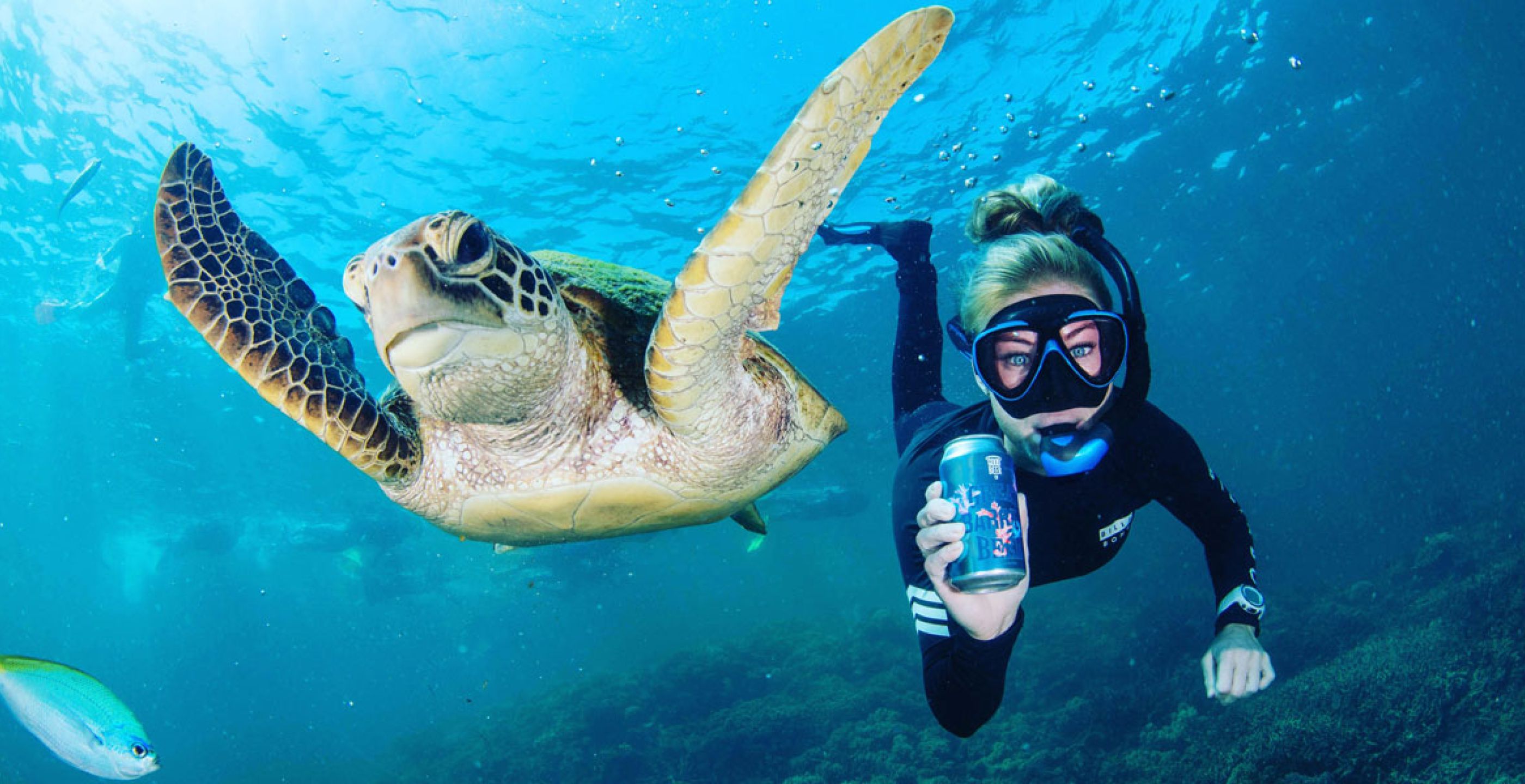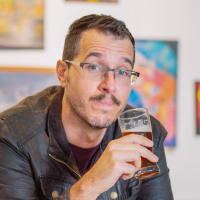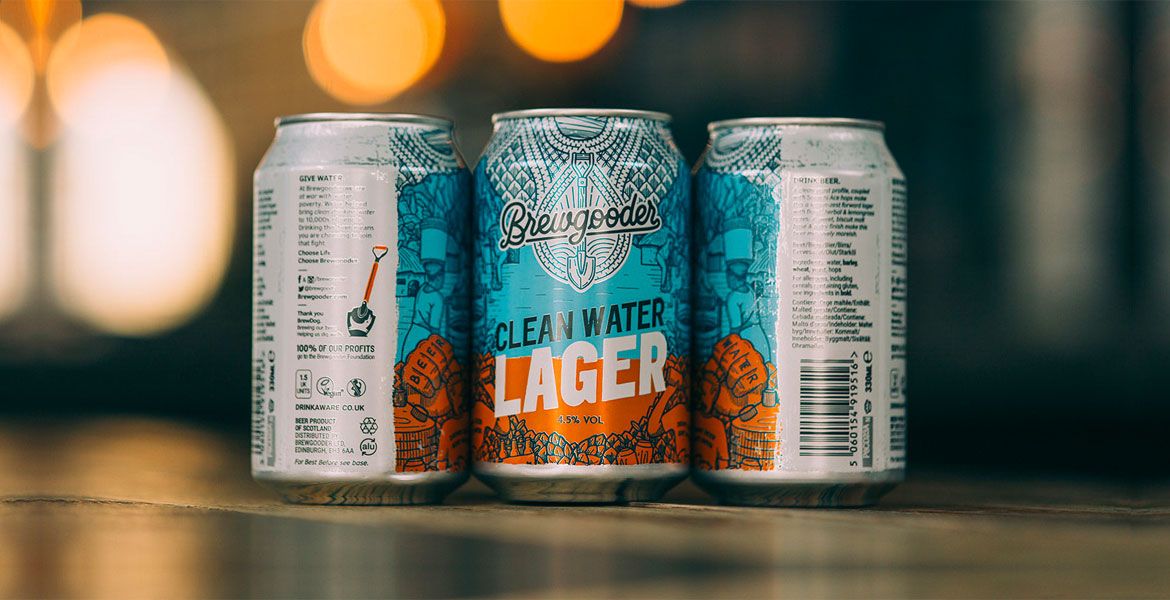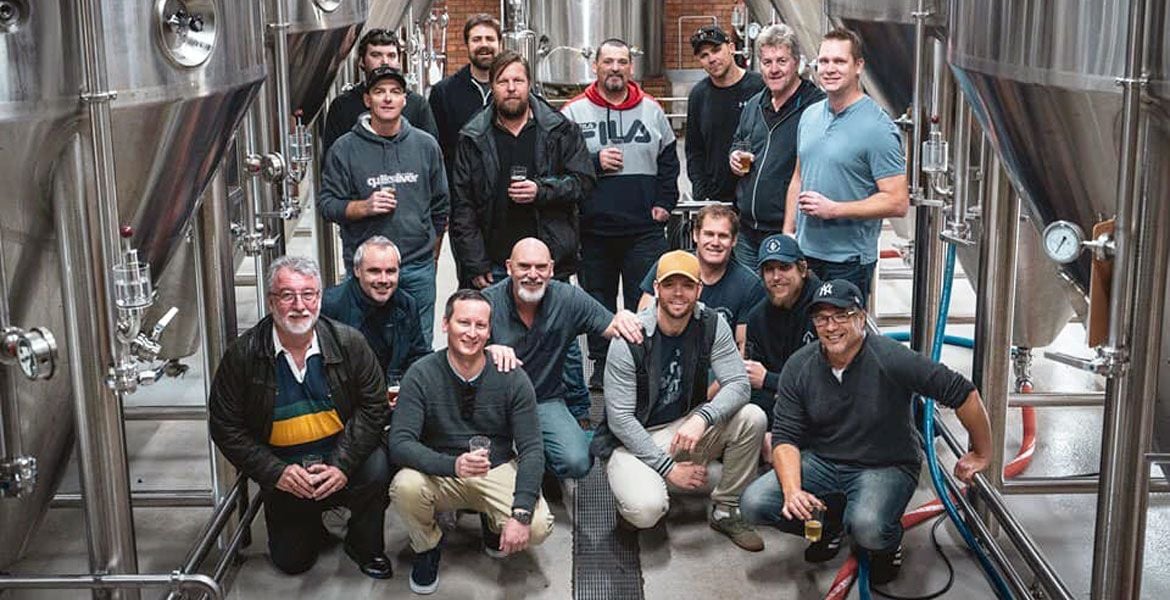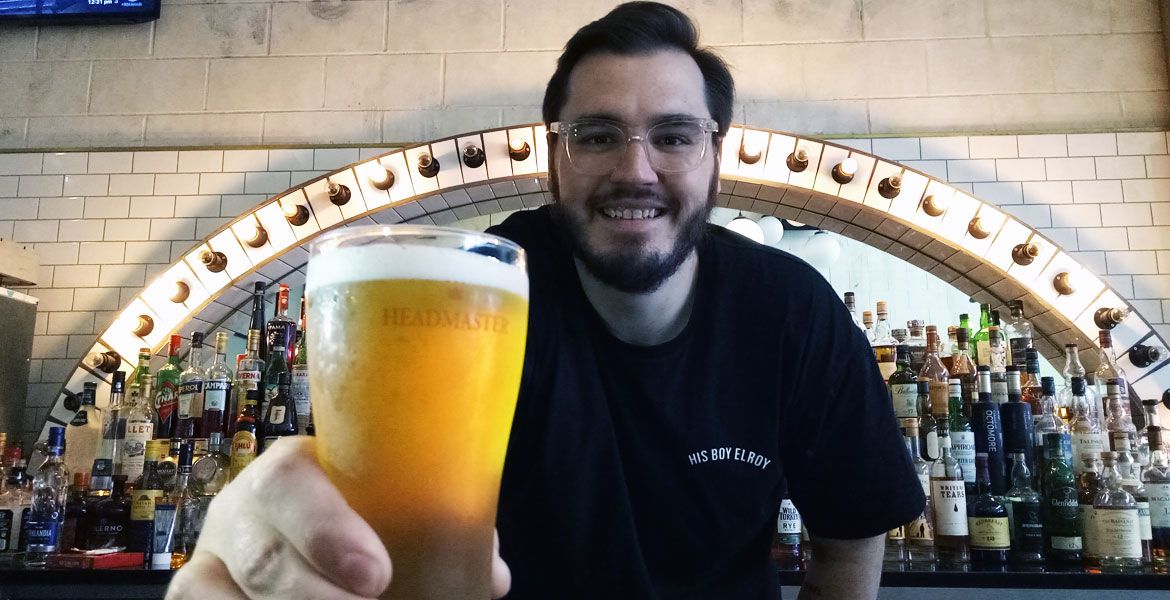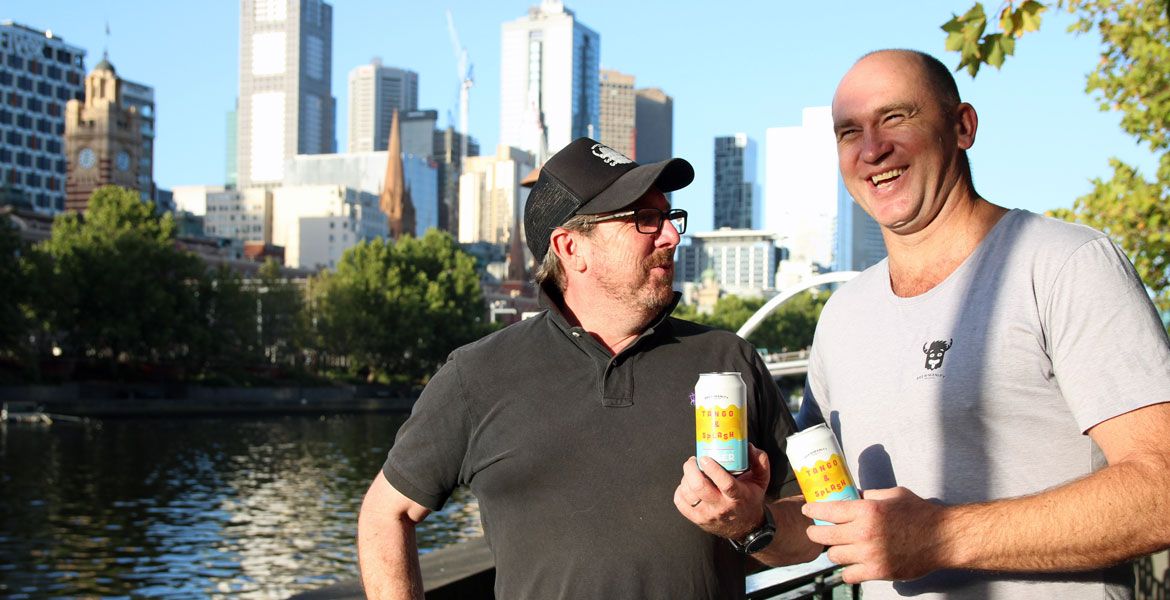“Alcohol is a great conversation starter. How often when you're enjoying a drink with a friend or stranger do you start solving the problems of the world?”
Agi Gajic, Sparkke
For years, philosophers have grappled with the question: What makes a beer a good beer? (If this doesn’t sound true to you, keep in mind we’re all philosophers after a few beers.)
Some say a good beer is one you keep going back to. Some say it’s an objective standard, based on whether or not a beer matches up to style guidelines, while others say it’s entirely subjective, based on the drinker’s preferences and experiences. Others yet will say a good beer is the one in your hand right now.
But some people choose to interpret "good beer" in a different way.
What if you could help save the Great Barrier Reef one beer at a time?
What if a tinnie could turn public attention toward serious social issues?
What if sharing a beer and starting a conversation could save a mate’s life?
We got in touch with the people behind five Australian beer companies who exist to do good in the world. They don’t just talk the talk – they put their beer money where their mouth is.
Good Beer Co
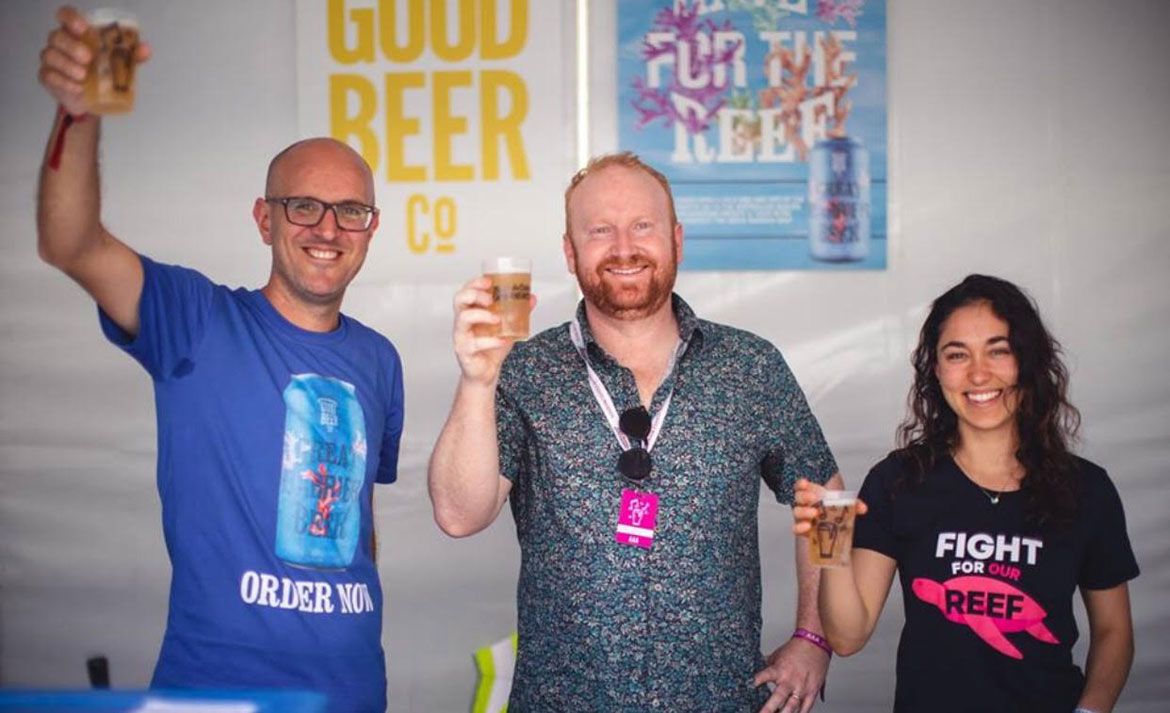
James Grugeon (above left at Beer InCider) has always been interested in social enterprises, and particularly those focused on environmental causes. It was when he was working with an organisation that helps households go green, and getting people to switch their power retailer to support charities, when he first had the thought: “If you can raise money for good causes through electricity switching, maybe you could do it with something more interesting.”
The most interesting thing he could think of? Beer.
With his background in environmental causes, James founded Good Beer Co to focus his energies on protecting the Great Barrier Reef, which is under greater threat than ever before. He partnered with the Australian Marine Conservation Society, committing to give at least half of all profits to the non-profit organisation. And though he lives in Brisbane, he teamed up with a brewery close to the reef itself, Bargara Brewing Co in Bundaberg, to create the first Great Barrier Beers: a Session IPA and a Melon Honey Kolsch.
There was some initial success with a crowdfunding campaign, getting the beers into BWS, and having the beers on P&O cruise ships – drinking a beer designed to help the reef while you’re looking at the reef.
But any new venture comes with its difficulties. While raising money and awareness for the reef was the goal, there was still a new small business to run.
“My problems were not dissimilar to other small startups," James says. "Managing cashflow was challenging, with pricing and payment terms, particularly with big retailers. The other problem is logistics. My initial approach was to say yes every time a little bar or restaurant wanted to stock my beer… until I later realised that by the time I got it to them, we weren’t making any money.”
After the initial launch, James took a two-year hiatus to regroup, and has recently relaunched Good Beer Co with new branding and a revised strategy and business model.
“In the last 18 months, I’ve learned a lot about how to do it and how not to do it. Some of the mistakes I’ve made are why I feel confident to do it again now.”
Going with a new brewery partner closer to his Brisbane base, James teamed up with Ballistic Beer to produce Great Barrier Beer.
“In order for Good Beer Co to work, we need to do session beers. And we need good quality," he says. "You hope people will buy it because it’s a good cause. But, ultimately, I’m kinda hoping that people will choose it because it’s a good beer. And I knew Lachy [Ballistic head brewer] would be able to put together a great Aussie lager for us.”
Together they landed on a 4.5 percent ABV lager made with all Australian ingredients, including Australia’s sweetheart, Galaxy, for that iconic fruity aroma.
This new iteration of Great Barrier Beer is enjoying greater success than the original, launching with another crowdfunding campaign as well as selling through BWS, Dan Murphy’s, and a number of independent venues and bottleshops. Good Beer Co has also launched a second beer – Pale Tail, a session pale ale brewed in conjunction with Slipstream Brewing to support the work of the RSPCA. Ten percent of all Great Barrier Beer sales go to the Australian Marine Conservation Society, and 10 percent of all Pale Tail sales go to the RSPCA.
But it’s not just about the money.
“The aim is to sell as much beer as we can; the margins aren’t high in beer," James says. "But if the RSPCA and Conservation Society were here today, they’d say it’s not just about funds raised, but profile as well. There are organisations that do a lot of good work and need funds, but they also want to talk to new people. And that’s what Good Beer Co’s all about – starting a conversation.”
The Sparkke Change Beverage Company
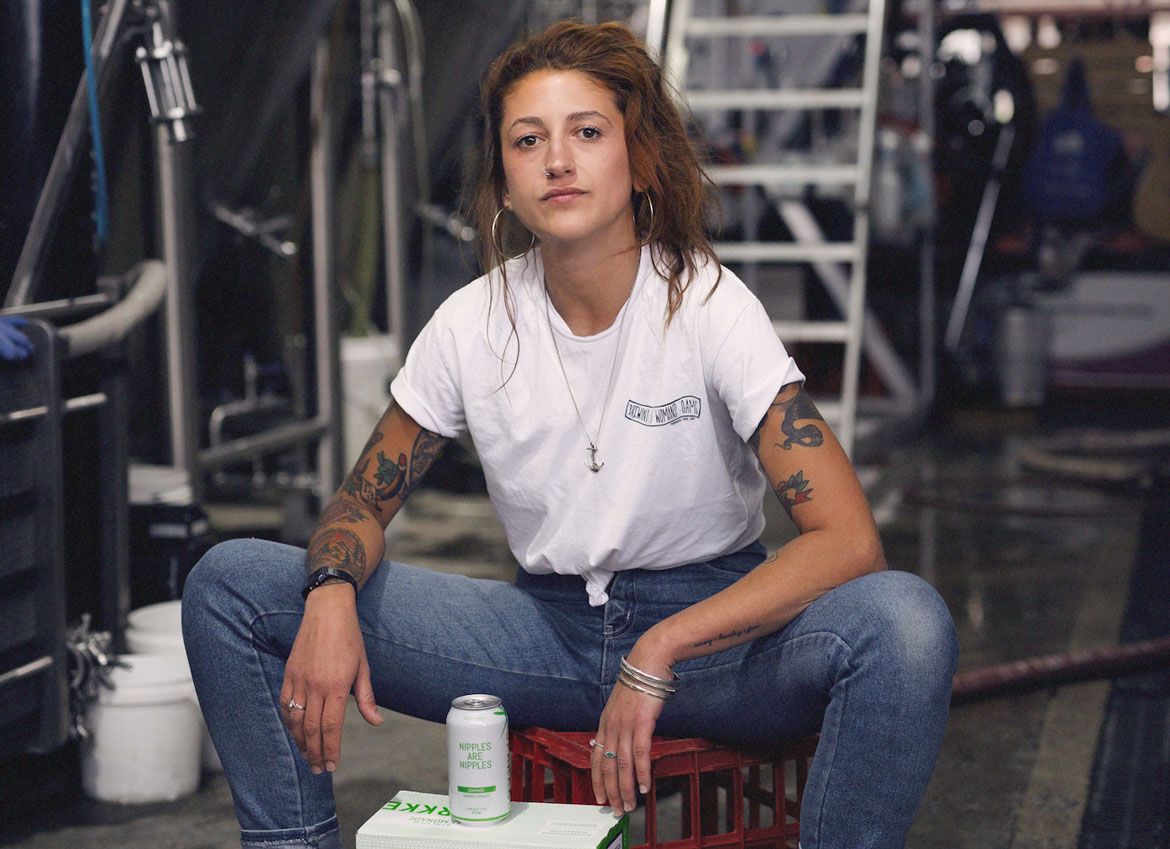
Most brands try to avoid discussing politics or being controversial in their marketing – you wouldn’t want to say things that potential customers might disagree with, right?
The Sparkke Change Beverage Company, on the other hand, is fine with being controversial for an important cause – or, more accurately, a range of important causes.
In 2016, Rose Kentish, an award-winning winemaker, and Kari Allen, an executive marketer with keen insight into the craft beer industry, saw an opportunity to use the booze industry as a way to address serious matters. They gathered a team of women who were from diverse backgrounds but like-minded in their mission to confront inequality and injustice.
Among these was Sparkke's head brewer Agi Gajic (pictured above), who studied philosophy and sustainability before landing in the beer world. Agi has in some ways become the face of the company – confident in her brewing skills, committed to seeing these causes progress, and comfortable with the idea that Sparkke ruffles some feathers.
“We want to disrupt the status quo capitalist model, and we hope to inspire others to do the same,” she says. “We want to help everyone feel good in their own skin. We want a socially progressive Australia.
“We're open about the fact the social issues we support are contentious and this has been reflected to us by some people.”
The team at Sparkke aren’t in any way coy about these contentious issues – they print their messages front and centre on their packaging as the names of the beverages within.
There’s Change The Date Pilsner, which pushes for greater sensitivity towards Australia’s indigenous people and an acknowledgement of the violent history attached to January 26; What’s Planet B? New England Pale Ale, which speaks to climate change and renewable energy; Boundless Plains To Share Ginger Beer, which seeks to see more compassion towards asylum seekers; Consent Can’t Come After You Do Apple Cider, which looks to foster a culture of positive sexual consent; Nipple Are Nipples Hard Lemonade, which addresses gender equality; and Say I Do White Wine + Bubbles, which is about progressing the conversations around LGBTQI+ rights.
Each drink has a "cause partner", an organisation that supports the cause on the tinnie, and a portion of every sale goes to these partners (ten percent of direct sales and four percent of channel sales). But, while this is a generous way for Sparkke to put their money where their beliefs and values are, it’s secondary to their main goal – to use good booze to turn public attention towards these issues.
“Alcohol is a great conversation starter,” Agi says. “How often when you're enjoying a drink with a friend or stranger do you start solving the problems of the world?”
Every time someone brings a can of Sparkke to the table, they bring a topic to the table. And that same combination of good booze around important conversations is the basis of Sparkke’s new 8hL brewpub in Adelaide, Sparkke at the Whitmore, which fittingly opened on International Women’s Day. Sparkke have “revamped a historic hotel and ignited a social revolution,” all the while giving punters “an inclusive, nurturing space”.
Agi says: “Sparkke at the Whitmore is our first venue that's more than a brewery and we want it to be fun. Live music, pub politics, really good vibes and social inclusion no matter who you are (or want to be).
“Adelaide city is so ready for a crafty, delicious, female-driven place that's safe but a bit wild.”
Craft Beer Coopery

It’s a sad reality that many men struggle to talk about how they’re going, or to reach out for help when they’re having a hard time. Trevor Lowder (above right) started Craft Beer Coopery as a way to bring guys together to have real conversations.
Trevor’s been through tough times himself in the years following the death of his brother.
“Life started to fall apart and I didn’t know why," he says. "I was spiralling into depression at a rate of knots and I didn’t even know what depression was.
“I didn’t reach out to my friends, colleagues or my wife and without help, things got much worse much quicker. I got to the point where I couldn’t do it anymore and was about to take my life.”
Eventually, Trevor reached out to his wife, was diagnosed with PTSD, and slowly overcame his depression, as well as learning a lot about depression in Australian men. One day, after having a beer and a deep conversation with a neighbour, he realised that something as simple as sharing a beer can spark real talk between men, which can help to combat mental health issues.
Craft Beer Coopery was born as a way to foster these kinds of conversation. It’s a monthly beer subscription that consists of nine beers (four pairs of beers to share with mates, and one mystery tinnie for yourself), a beer snack, some notes about the beers and the breweries, and some R U OK? coasters to help turn the conversation. The idea is to set up regular times to get together with a mate to chat over a beer. The beer acts as the catalyst, and the beers and breweries’ stories get you chatting, and then at some point the conversation can move onto… “So. how are you going?”
Trevor knows a beer doesn’t magically make someone open up, and so went with a monthly subscription model to help the relationships and the culture of talking to build over time.
“Our message is all about repetition. A lot of the time you get together to have an important conversation but you don’t really get up the nerve to ask the questions you wanted to – whether that’s in a workplace or at your mate’s garage. So to know there’s a fall back of being able to do this again next time is really important.”
An unexpected evolution of the service was corporate subscriptions, where companies replace their replace their normal Friday drinks with these boxes of beer.
“It came as a result of a business contacting us and asking us to send some, sharing that [mental health issues] could be a real problem in the workplace," he says.
“The advantage of the workplace is it can help conversations across 12 or 15 people.”
There’s also the option to “Craft it forward” – to send a box to a mate to let them know you’ll be over soon for a beer and a chat.
Trevor’s aware of the need to tread carefully when addressing topics such as depression in association with alcohol (you can read an article by Callum Reeves of KAIJU! on the subject here). But, since talking about mental health issues and other real struggles is so important, he also sees the value of something that helps people to open up.
“Good conversations do happen over great beer in moderation,” he says.
Craft Beer Coopery promotes R U OK?, and says on their website: “The Craft Beer Coopery encourages men to look out for one another. Be a mate who starts a conversation. It could be a life-changing one. After all, it's OK to ask, R U OK? And it's OK if you're not.”
Developing an intentional mindset of sharing beers and opening up can take time and a little help. But at the end of the day, one conversation over one beer can make all the difference.
A Local Beer
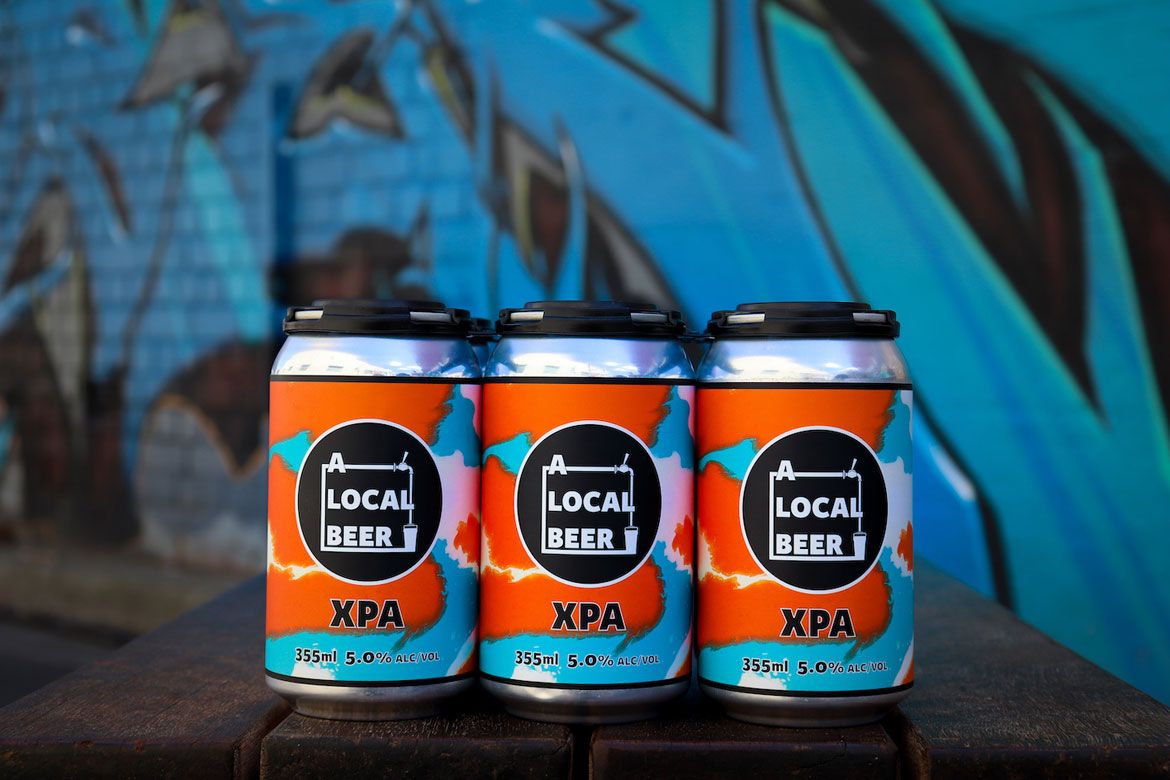
Beer’s always been perfect for quenching a thirst… but what if it could also be used to address hunger?
New independent beer label A Local Beer harnesses the power of beer to get food to people in need. For every pint of beer or six-pack they sell, they give the equivalent of one meal to someone in need through a partnership with SecondBite, an organisation the rescues edible, nutritious food that’s otherwise headed for landfill and gives it to people who are struggling.
Nick Campbell, co-founder of A Local Beer, says: “We aren't afraid of tackling the big issue of food wastage locally. We think that we can contribute through each beer purchased, but, more importantly, the highest impact will be from supporting relevant community events and starting the conversation with craft beer lovers.”
The first batch of A Local Beer’s XPA received a great response, and Nick is ecstatic about the impact he and his team have been able to make already.
“The feedback from the punters, local bars, restaurants and bottleshops has been overwhelming – we sold out of our first batch in three weeks. We also were able to fundraise funds at our launch event to provide over 3,000 meals to those in need, which we are incredibly proud about."
With a second batch of XPA on the way, A Local Beer is set to join the ranks of brewing companies helping people to think differently about the beer they drink.
Take a sip of beer. Give someone a bite to eat.
Brewmanity
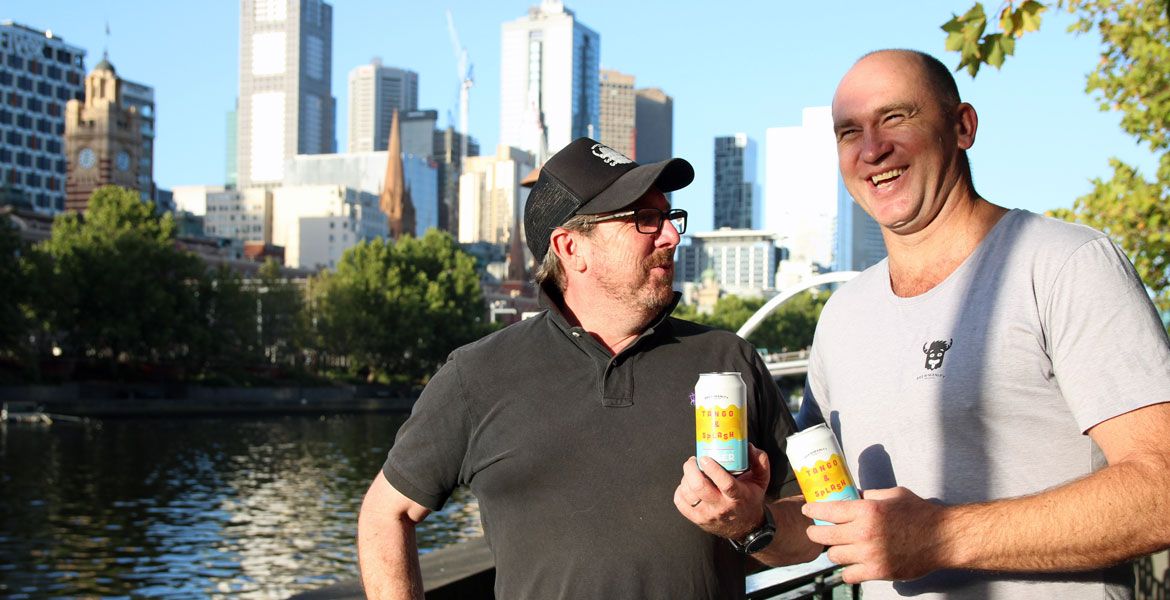
“Imagine if every beer we ever had did a little good in the world…”
Talk to enough brewery owners and brewers, and there’s one brewery origin story you’ll hear come up again and again: “We were having a few beers one night, and thought, ‘Wouldn’t it be great to start a brewery?’.” But it’s not often that the conversation continues to say, “…so that we can raise money to cure a disease.”
But that’s exactly how Brewmanity began. This Melbourne-based operation is headed by David "Neita" Neitz (above right), former Melbourne FC captain, and Jamie Fox (above left), whose past experience includes overseeing marketing at Matilda Bay. Neita saw an opportunity to use his love of beer to make a real difference when his friend and former coach, Neale Daniher, was diagnosed with Motor Neurone Disease (MND/ALS) and subsequently began Fight MND, a charity to raise awareness and funds to find a cure.
At time of writing, the brewing company is midway through its second Beer March fundraiser, which you can read all about here, while a portion of profits from the sale of beers, including Social Bandit and Tango & Splash, go to the charity too.





